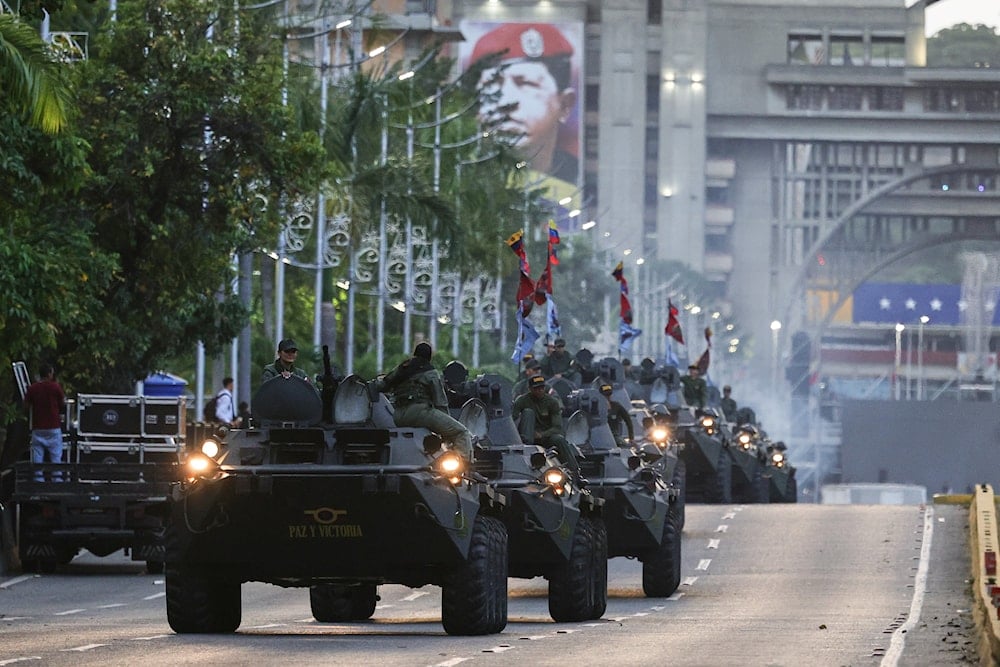US approves covert CIA action in Venezuela: Reports
The Trump administration reportedly authorized CIA covert operations in Venezuela to escalate efforts against President Nicolas Maduro.
-

Armored vehicles drive through a street during a government-organized march in support of President Nicolas Maduro in Caracas, Venezuela, Tuesday, Sept. 23, 2025. (AP)
The Trump administration has secretly given the CIA permission to conduct covert operations in Venezuela, which includes carrying out deadly strikes, representing an escalation of the campaign against Venezuelan President Nicolas Maduro and his government, according to a The New York Times report from Wednesday that cited unnamed sources.
These operations could involve strikes within Venezuela, which is a more serious step than recent US attacks on boats off the coast, attacks that were supposedly linked to drug trafficking and have so far caused 27 deaths, according to the report. The goal behind all these actions is to oust Maduro from power, sources told the NYT.
Despite the approval, there is no confirmed information that the CIA actually plans to conduct operations in Venezuela or the Caribbean, and all the intelligence on this issue comes from anonymous US officials who claim to be familiar with a highly classified document.
On October 10, The New York Times reported that Maduro allegedly offered US President Donald Trump access to Venezuela's valuable resources in order to reduce tensions between the two countries and to avoid a potential US military intervention. The United States rejected Maduro's offer, instead opting to escalate military action against Caracas.
US escalates its campaign against Venezuela
In August, the US sent several warships and nearly 4,500 marines to the Caribbean, claiming this was to stop drug-related activity supposedly coming from Venezuela, and these forces included three destroyers, an amphibious assault ship, a missile cruiser, and a nuclear submarine.
On October 11, the Pentagon announced it is creating a new task force for counter-narcotics to increase US military operations across Latin America, a move that signals a major expansion of military involvement in the Caribbean and has already caused legal concerns for lawmakers and experts.
War Secretary Pete Hegseth stated that the mission's goal is "to crush the cartels, stop the poison, and keep America safe."
The new task force will be led by the II Marine Expeditionary Force (II MEF), which is a North Carolina-based unit known for its rapid-deployment capabilities, and Southern Command emphasized that the task force will "synchronize and augment counter-narcotics efforts across the Western Hemisphere."
Marine Lieutenant General Calvert Worth, who leads II MEF and will now command the task force, said, "This is principally a maritime effort," while noting that operations will include maritime patrols, aerial surveillance, precision interdictions, and intelligence sharing with US and regional partners.

 3 Min Read
3 Min Read








